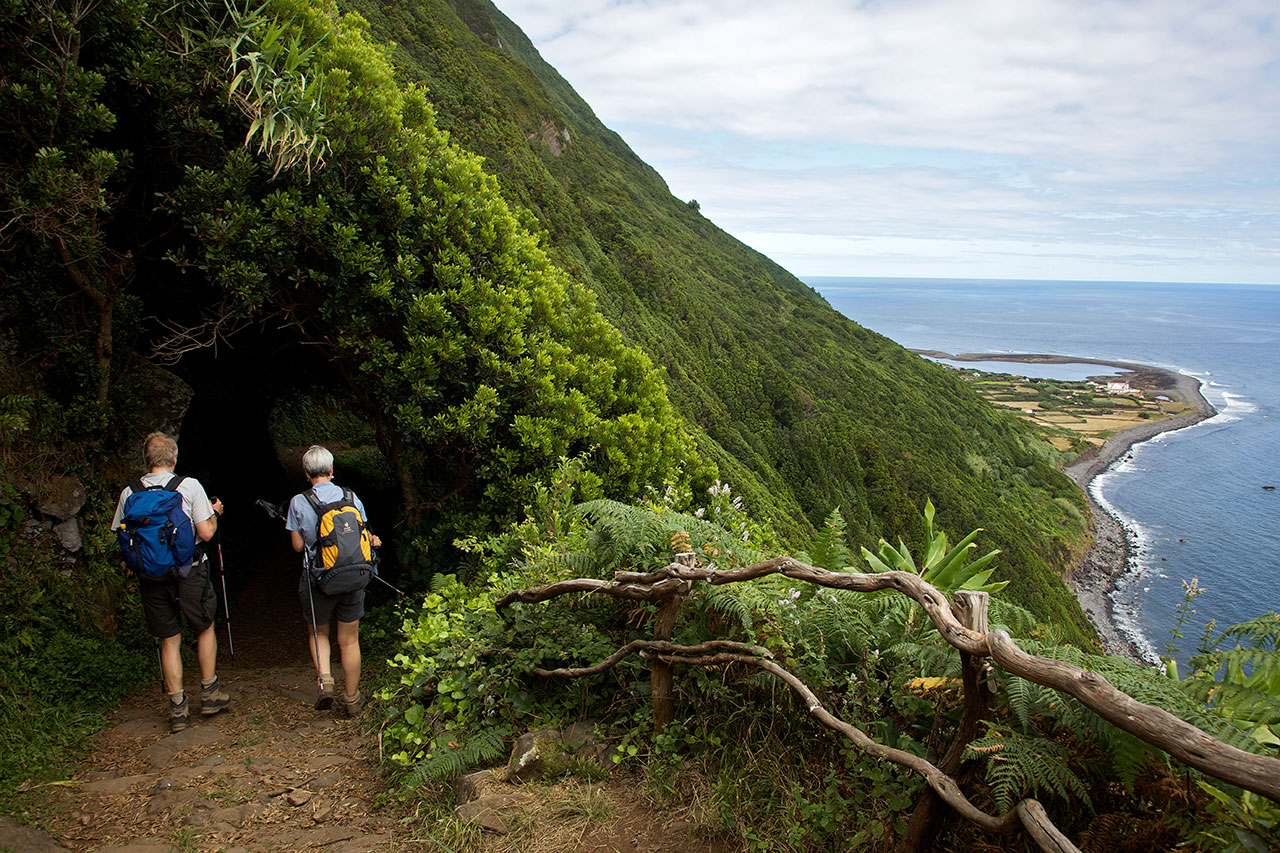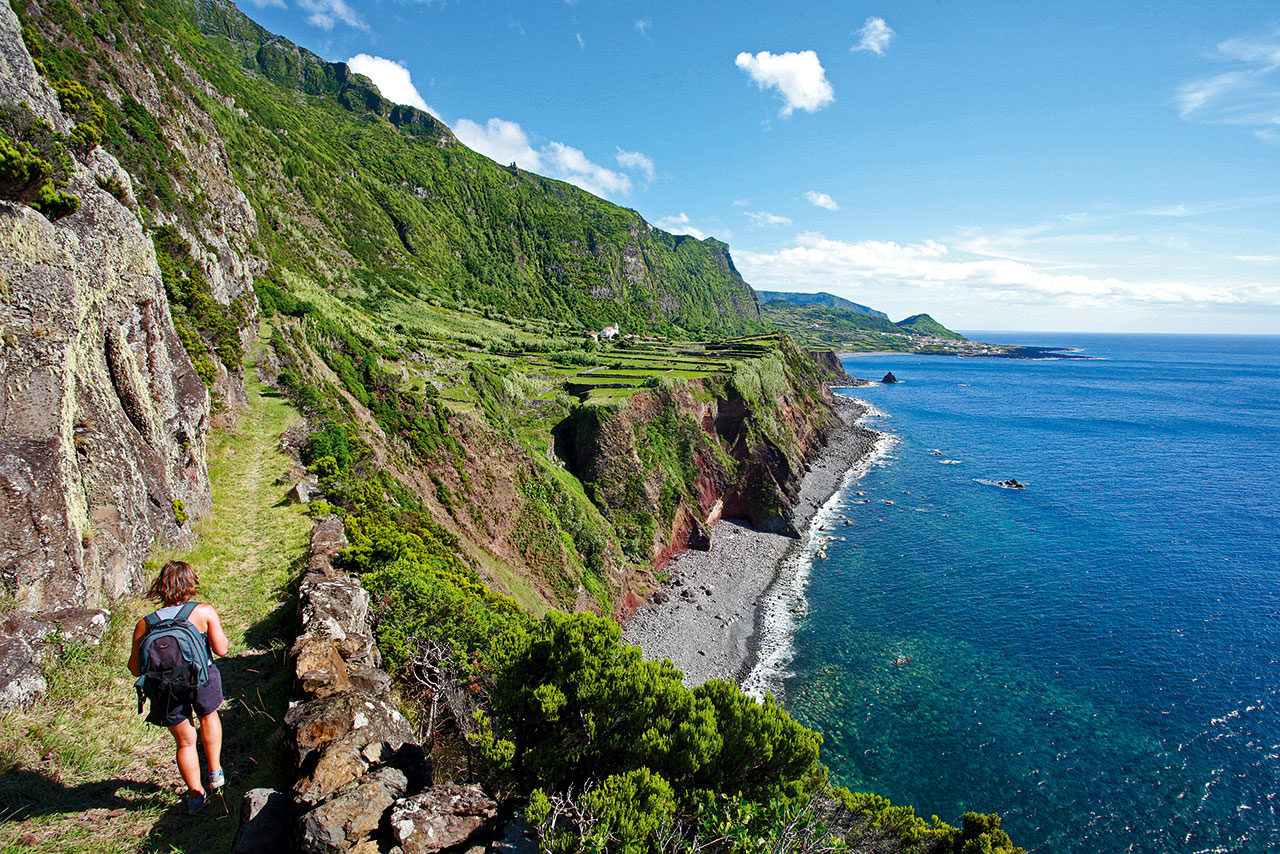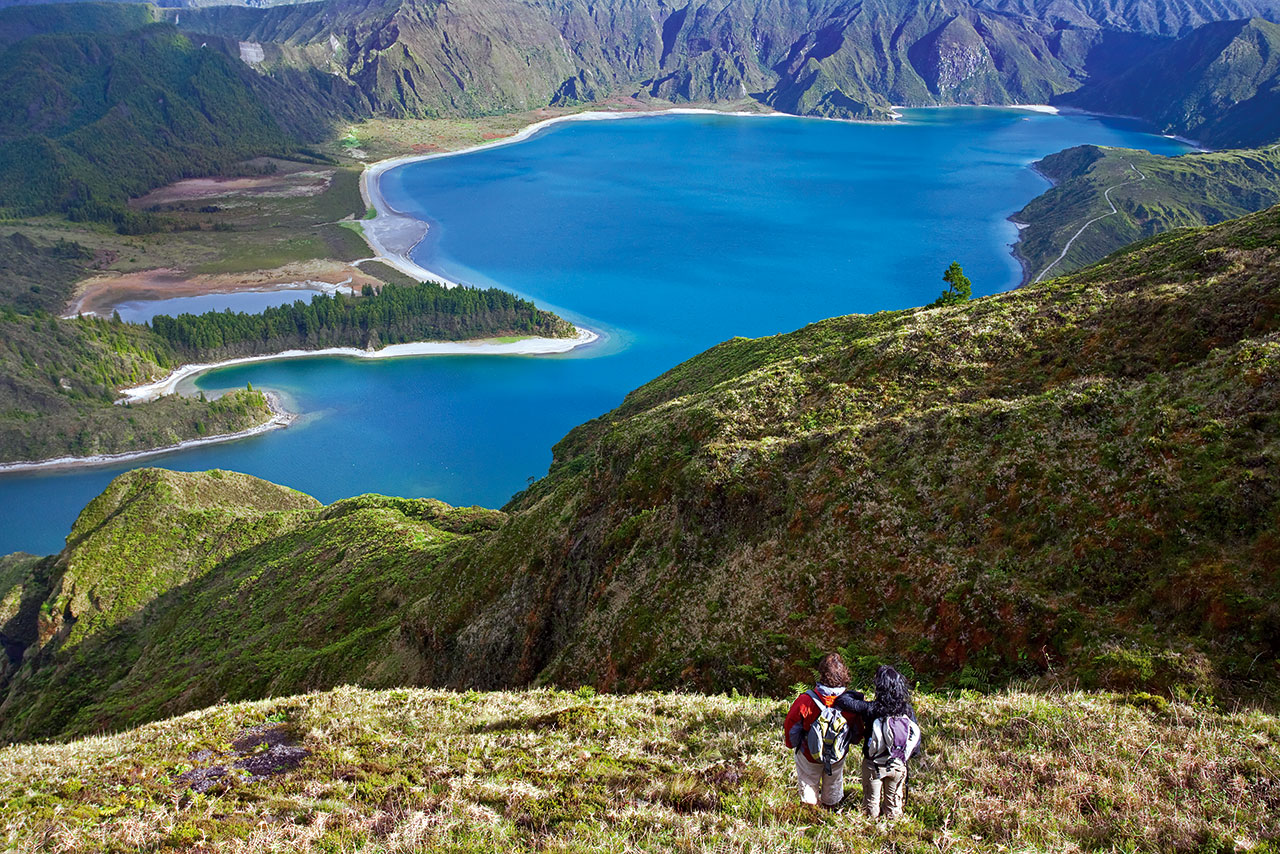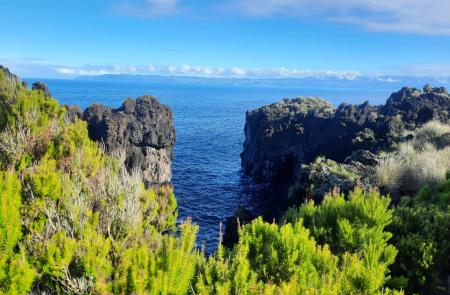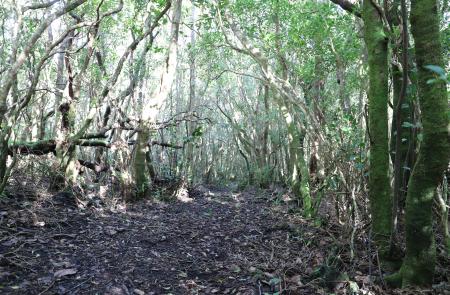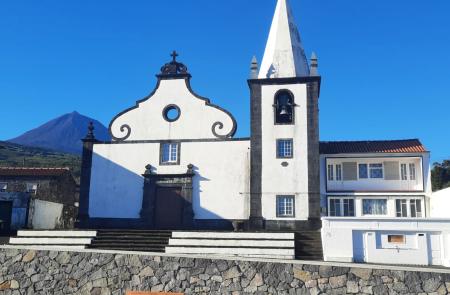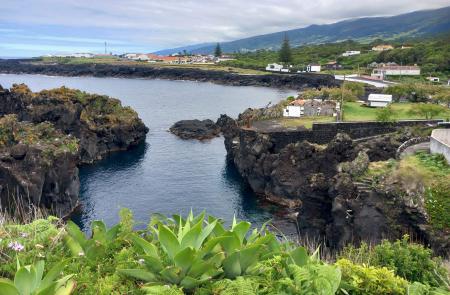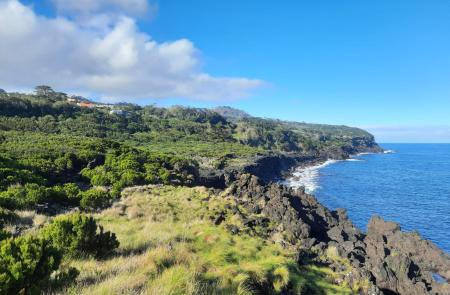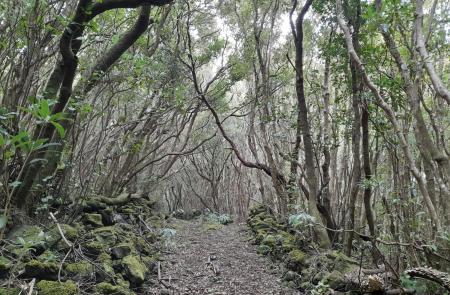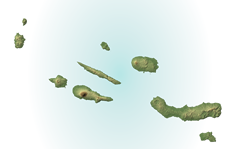Garajau - Pico PRC20PIC
Trail Info
The small circular trail of Garajau is around 7,80km long. It starts in the natural pools of Furna in the village of Santo António, in São Roque Pico.
At the uphill part of this trail, you will walk through dirt tracks and the old tracks for ox carts, that were previously used for all kind of transport. Because of this, it is possible to see the “relheiras”, which are old marks on the ground created from the continuous use of these roads by ox carts. While descending, you can visit “Adega A Buraca”, where you can taste the local wines, liquors and spirits. Next to Santo António church, you will be able to see the mountain of Pico, the highest point of Portugal with 2351m.
After returning to the coast, the trail runs through the Protected Area for Management of Habitats and Species of Furnas of Santo António and, also, through the geosite of “Arriba Fóssil de Santo António-São Roque”. This old cliff was created from basaltic lava flows of the aa type and in some areas, you can find lava flows of the pahoehoe type that came from the Pico mountain. Throughout the coastal area of Furna, you will be able to see several rocky outcrops, caves, and small islets.
In terms of flora, you will be able to observe some endemic species, such as the azorean heather (Erica azorica), the festuca petraea and the azorean picconia (Picconia azorica). It is also possible to see native species like the sharp rush (Juncus acutus) and the rock samphire (Crithmum maritimum). This trail is also important in terms of fauna, due to the presence of several bird species: the common tern and roseate tern (Sterna hirundo and Sterna dougallii), the cory’s shearwater (Calonectris borealis), the yellow-legged gull (Larus michaellis atlantis), the rock pigeon (Columba livia) and the common-wood pigeon (Columba palumbus azorica).
This small circular trail will lead you back to where you started and, if you are willing, you can swim at the Furna natural pools, which offer a view of the island of São Jorge. This area also offers a panoramic view of the Furnas de Santo António Natural Reserve, which includes a 0,16 ha islet of great importance as an habitat for migrating birds. Due to it being a nesting area for birds like terns and cory’s shearwater during the summer, it is advised not to engage in activities that might disturb these species’ nesting process.
